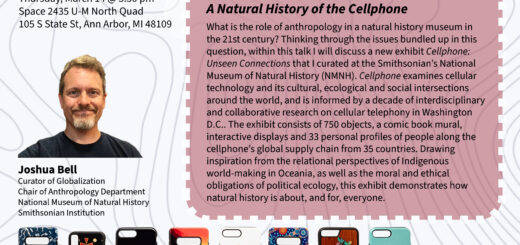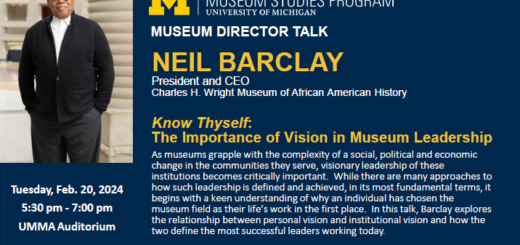Unseen Connections: A Natural History of the Cellphone

What is the role of anthropology in a natural history museum in the 21st century? Thinking through the issues bundled up in this question, within this talk I will discuss a new exhibit Cellphone: Unseen Connections that I curated at the Smithsonian’s National Museum of Natural History. Cellphone examines cellular technology and its cultural, ecological and social intersections around the world, and is informed by a decade of interdisciplinary and collaborative research on cellular telephony in Washington D.C.. The exhibit consists of 750 objects, a comic book mural, interactive displays and 33 personal profiles of people along the cellphone’s global supply chain from 35 countries. Drawing inspiration from the relational perspectives of Indigenous world-making in Oceania, as well as the moral and ethical obligations of political ecology, this exhibit demonstrates how natural history is about, and for, everyone.
Dr. Joshua A. Bell is Curator of Globalization at the Smithsonian Institution’s National Museum of Natural History (NMNH). Combining ethnographic fieldwork with research in museums and archives, Bell examines the shifting local and global network of relationships between persons, artefacts and the environment. To date he has carried out research with communities in the Purari Delta of Papua New Guinea, with historic Oceanic collections, and on cellular telephony in Washington, D.C.. He is currently the chair of NMNH’s anthropology department, and is the steward of NMNH’s Oceania, African and South American collections as well as the collections of the National Anthropological Archive. He is a founding member of Recovering Voices, and co-directs the annual Mother Tongue Film Festival. He also directs the Summer Institute in Museum Anthropology, a summer course funded by the National Science Foundation that teaches graduate students how to effectively and ethically engage with museum and archival collections.


